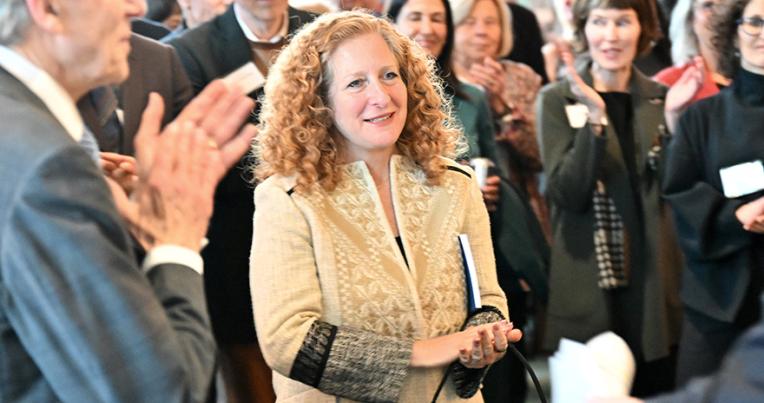Five Questions for Five Alumni
UCLA Law Magazine | Fall 2020 | Volume 43
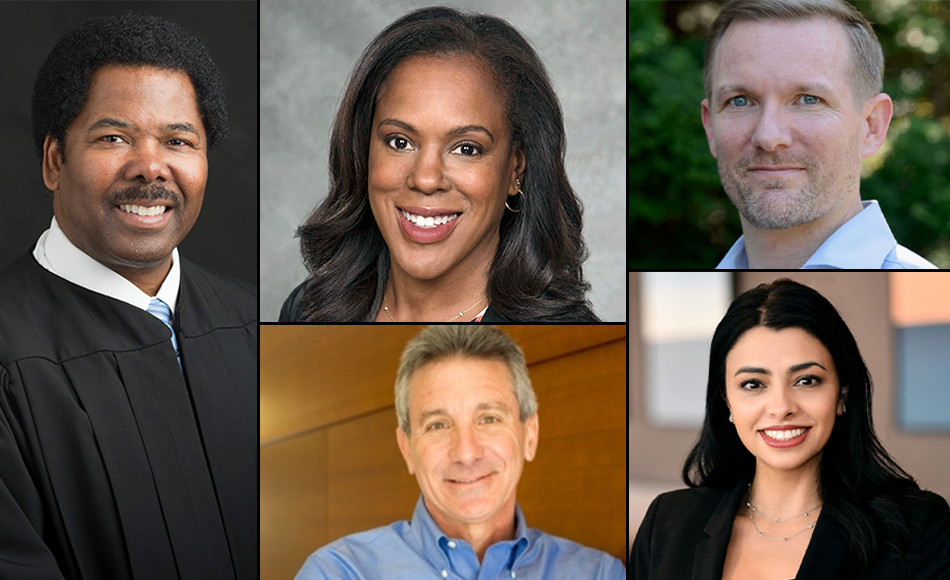
The presiding judge of the Los Angeles Superior Court. A trendsetter in Silicon Valley. An entrepreneur dedicated to diversity in the entertainment business. The head of litigation at a voting rights organization. An experienced law firm partner working to enhance police accountability. Five UCLA Law alumni. Five leaders and changemakers. To get their perspectives on today’s biggest challenges, we asked each of them five questions.
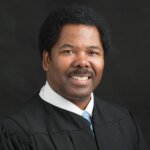 Kevin Brazile '83
Kevin Brazile '83
The first African American presiding judge of the massive L.A. Superior Court, he oversees 40 courthouses, more than 600 judicial officers and nearly 5,000 employees.
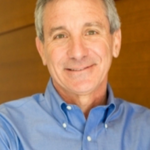 Josh Green '80
Josh Green '80
The senior vice president of corporate development and strategy at Carbon, he has spent decades in Silicon Valley law and venture capital with a strong focus on cleantech.
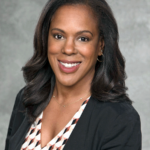 Catrice Monson ’97
Catrice Monson ’97
After 20 years at CBS, she founded Right Size Media to boost equity, diversity and inclusion efforts in Hollywood, and she teaches Hollywood Guilds at UCLA Law.
 Paul S. Ryan ’01
Paul S. Ryan ’01
The vice president for policy and litigation at Common Cause, he drives the grassroots voting rights efforts of more than 1.2 million members and supporters nationwide.
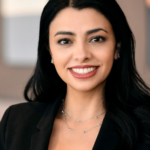 Rasha Gerges Shields ’01
Rasha Gerges Shields ’01
The Jones Day partner and former assistant U.S. attorney co-chairs the Los Angeles Police Commission’s new Advisory Committee on Building Trust and Equity.
From the coronavirus pandemic to mass protests over systemic racism, how have the events of this year impacted the way you think about your work?
Kevin Brazile: I have to be more aware of my own and others’ implicit biases and talk about ways to eliminate them – listen to people and show more empathy.
Josh Green: These events caused me to re-examine how I can contribute in the most effective way, both to my company and the larger community. In short, I learned to focus on doing what is most impactful. I feel like my time and efforts have become more targeted and productive, and it has sharpened my desire to live one of my favorite John Wooden quotes: “Never mistake activity for achievement.”
Catrice Monson: It’s really broken down barriers and resistance to a lot of technologies and ways to work differently. Apart from time differences, now you can truly work from anywhere and provide services to people anywhere in the world. So while we’ve all been disconnected in a lot of ways, I’ve actually felt more connected to a lot of people. In a way, this time has provided us with more opportunity, not less.
Paul S. Ryan: I’m a nonpartisan voting-rights attorney, and the pandemic has necessitated systemic changes to create safe voting options in this year’s elections. Common Cause has been fighting to pass legislation, improve administration and win litigation that expands voting by mail and makes in-person voting safer. With a president who refuses to denounce white supremacists or to commit to a peaceful transfer of power, we’re preparing to continue fighting after the election to ensure every eligible voter’s ballot is counted.
Rasha Gerges Shields: The social unrest that began after the unjustified death of George Floyd has been impactful on my priorities. The need to focus on police reform, criminal justice reform, and racial equity is at the forefront of my mind and my actions. In early June, my firm, Jones Day, initiated a Constitutional Policing and Civil Justice Reform initiative. Since that time, more than 50% of my time each week is spent on working on this initiative. And in late July, I was selected to co-chair the Los Angeles Police Commission’s newly formed Advisory Committee on Building Trust and Equity. As lawyers, we can make meaningful changes to our community. When we see injustice, we shouldn’t just sit on the sidelines and wait for someone else to fix it. None of us “have the time” to take on these added responsibilities, but for issues of great importance, we must make the time. Ask yourself – if you don’t do it, who will?
What is the biggest lesson from your days as a UCLA Law student that you still use today?
Brazile: Humility, empathy, integrity and courage.
Green: The tools of “how to think” that I still use every day. On the first day of law school, one of my professors said, “We are going to change how your mind works forever.” While that sounded intimidating, it was 100% true. I approach important questions with reflexive risk/reward calculations. This manner of thinking is one of the foundational elements of my career.
Monson: The relationships. My time at the law school created some amazing friendships and networks that I rely on both professionally and personally. It never ceases to amaze me when I’m sitting in a meeting with someone, particularly in the entertainment industry, and we’ll realize that we were at UCLA Law together. I’ve been in people’s weddings, been roommates, colleagues. The professional community and the friendships just continue to enhance my life.
Ryan: The relationships I built with attorneys in the field of public interest election law. During my first semester, a UCLA Law professor introduced me to one of our nation’s leading election lawyers, who became a mentor and employer, and who remains a friend today. UCLA Law’s public interest program provided me with grant support to work at multiple nonprofit election reform organizations while a student, further expanding my professional network that enabled me to build the career I have today.
Shields: Collegiality. So much of your success in the legal profession is based on relationship building. I am proud of the fact that the environment of UCLA Law is one of collegiality and cooperation, rather than being competitive and cut-throat. Helping others, mentoring, and giving back to the community are core values that UCLA Law has instilled in me.
How has your career path diverged from what you envisioned at the start?
Brazile: I wanted to be a high-paid corporate lawyer working at a large national law firm. Instead, I became a civil trial attorney, a superior court judge, and now I am the first African American presiding judge of the Los Angeles Superior Court, which is the largest trial court in the country. Looking back, things turned out great for me.
Green: I originally attended UCLA Law with the objective of entering politics and quickly learned that the law could offer so many other opportunities. I had a particular interest in real estate law, but when I arrived for my first day on the job, I learned that there was no room in that department. By default, I became a corporate lawyer and was introduced to a then-unknown (at least to me) wonderland called Silicon Valley in 1980. It taught me to always be open to the benefits of serendipity.
Monson: I thought I would do something in children’s advocacy, but then I had to pay student loans, so that didn’t work out. But whether it was working at a law firm or doing labor relations at CBS or now with my current work in diversity, equity and inclusion, UCLA Law gave me the tools for other kinds of advocacy, and that has been the through line in my career. I’m not necessarily focused on children’s rights, but hopefully the work that I’m doing will still impact the world in a positive way.
Ryan: Prior to beginning law school in the ’90s, I was a political activist who had concluded that our elections and government institutions were very undemocratic. I went to law school to become a public interest attorney who would fight to build a more inclusive democracy. I’ve been fortunate to build the career that I dreamed of as a law student. But over the past 20 years, I’ve come to understand more deeply that racial and other inequities in our political system are by design. I’m not fixing a “broken” system; I’m fighting to change an undemocratic system that’s working as designed.
Shields: As a first-generation professional, I had no clue what my career path was going to look like when I started law school. I am thankful that I stumbled into certain opportunities, like clerking, which greatly impacted the trajectory of my legal career. Also, in law school, I always thought criminal law was interesting, but I never even considered becoming a federal prosecutor. That did not become a goal of mine until I was exposed to the U.S. Attorney’s Office during my district court clerkship, and particularly because the judge I was clerking for (Judge Gary Allen Feess ’74) was a former federal prosecutor who I greatly respected and wanted to emulate.
Given the great mix of opportunities and challenges in the current legal and business marketplace, what advice would you share with law students graduating today?
Brazile: Work hard, be prepared and believe in yourself.
Green: Remain agile, resilient and determined, while remaining unalterably committed to what is important to you. In every situation, there is always opportunity. When you match opportunity with passion and purpose, success often follows.
Monson: Intern and gather as many new experiences as possible. You can learn what you like and don’t like, and it will potentially expose you to something you never thought about. Be nimble. Take advantage of whatever is presented to you, even if it might not be exactly what you envisioned or sought out, because you’re always going to learn something.
Ryan: Choose an area of law that you feel passionate about. I followed my heart and am one of the few attorneys I know who loves my work. I’ve spent my whole career in the nonprofit sector, and, though starting salaries in the nonprofit world are lower than at law firms, over time you can earn a comfortable salary with a good work/life balance in the nonprofit world – and feel good about yourself going to bed at night. If you intend to be a public interest lawyer, spend your law school summers and externship getting your foot in the door at organizations in your chosen field, so you have a leg up on your competition when trying to land your first full-time job.
Shields: Keep an open mind. Your legal career is a long one. Your career can span a variety of different experiences, including working in the private sector, government, public interest, judiciary and academics. Take every opportunity you can to gain experience, but do not feel as though you will be forever tied to a particular subject matter or field. Your law degree is versatile – do your best work and doors will open.
These days are filled with many reasons for doubt or discouragement. But what makes you optimistic about the future?
Brazile: I believe in unity and teamwork, and we have that in the legal profession. Working together, we will get through this pandemic, and together we can overcome any challenge.
Green: Optimism is hard because anything of value is hard to achieve. Will we find solutions for climate change? Yes, because our lives depend on it. Will we reform the justice system? Yes, because most Americans want to build a “more perfect union.” Will we solve for wealth inequality? Yes, because democracy depends on it. The real question is what will be the speed and impact of that progress? I am convinced that each of us has the power and responsibility to affect that speed and impact positively, and so I remain optimistic.
Monson: This year has been quite a wild ride, but there have been glimmers and glimpses of hope. People are putting aside things that they don’t need in their lives and focusing on the things they really want to pursue. There seems to be a renewed focus on endeavors that have impact and that make you happy. It’s sort of been my mantra – peel away what’s unnecessary to find what brings you joy. And regarding the conversations that we’re having about race and social justice, I hope what we see is real action coupled with those conversations. I’m cautiously optimistic about that.
Ryan: As a democracy-reform advocate, it’s easy for me to dwell on the negative: Wealthy white men continue to hold disproportionate political power. But as a student of history, I know that our nation’s political system has never been more inclusive than it is today. We have a long way to go to build a democracy that works for everyone, but we should celebrate and be inspired by the accomplishments of civil rights leaders who for 250 years have fought for the rights of marginalized people. As a nation, we’re heading in the right direction and need to keep fighting for a more equitable society.
Shields: The eagerness and tenacity of the new generation of lawyers is what makes me optimistic for the future, particularly in the area of diversity and social justice. While my generation was just happy to be invited to the party, this generation is demanding a seat at the table to plan the party. This generation will not be satisfied with lip service – they are demanding substantive change and will not settle for less.
